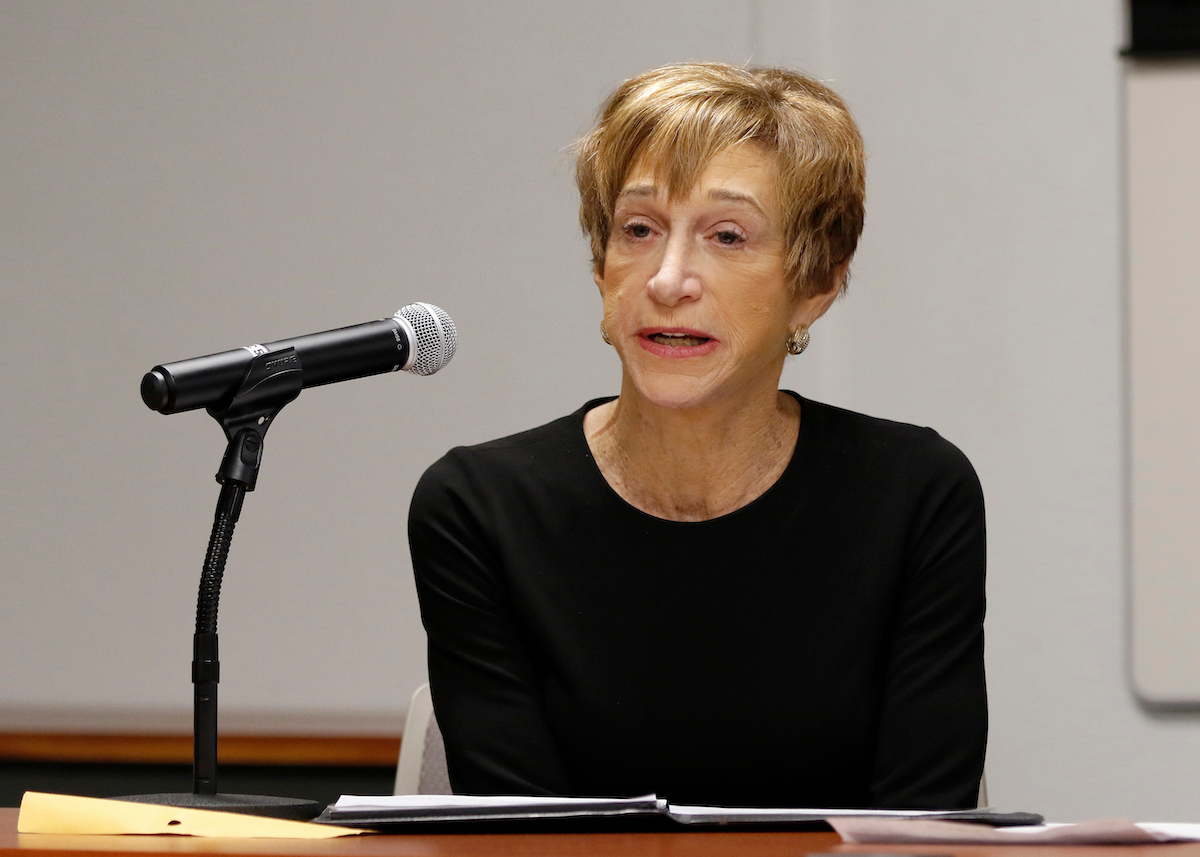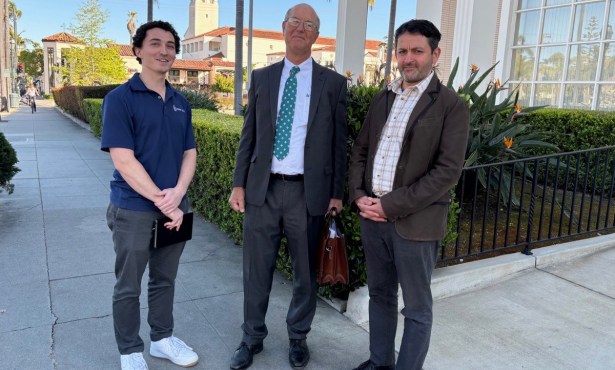Santa Barbara County Looks to Yolo County for Criminal Justice Reform
A New Program Hopes to Bring Trust and Transparency to the DA’s Office

Governments across the country are grappling with criminal justice reform but are hampered by the lack of accurate data on which to base new policies and actions. Counties in California, including Santa Barbara, are looking for ways to gather this needed information effectively.
The small county of Yolo in the Sacramento Valley has a pilot program called the Commons that just might be the solution.
Through the Commons, anyone can see in seconds how many misdemeanors and felonies are referred to the county district attorney each month, how many of those cases go through to sentencing, and how long it takes for cases to make it through the system. That information can be further broken down by type of crime, race, gender, and age range. Anyone can compare how many white, Black, Asian, and Hispanic people are being prosecuted through the DA’s office.
It has piqued the interest of many California DAs, but there is a hitch to immediately implementing it. The demand for the new system is so great, it is exceeding the technical capabilities of Measures for Justice, the nonprofit organization that runs the program.
The California District Attorneys Association (CDAA) formed a partnership with Measures for Justice about a year ago, allowing many counties to turn over their data to them. That organization acts as a neutral party, organizing public dashboards, according to Jeff Reisig, Yolo County District Attorney and vice president of the CDAA.
“It’s 100 percent built, run, and controlled by Measures for Justice,” said Reisig. He does not have any access or control over the data, which he believes gives the program real independence from manipulation by any DA office or law enforcement. This, he hopes, will help improve public confidence.
Santa Barbara’s Public Defender Tracy Macuga said such transparency in public institutions should be seen as a nonpartisan goal. “Yolo happens to be a very conservative jurisdiction, led by a very conservative district attorney,” she said. So using Yolo as an example is sort of saying, “ ‘Listen, no, this isn’t a liberal issue, this is not a conservative issue. This is just an issue,’ ” Macuga said.
District Attorney Joyce Dudley said she reached out to Measures for Justice to begin a partnership in Santa Barbara, but the wait would be “several months.” In the meantime, Dudley wants to begin publishing some preliminary data from the District Attorney’s Office on its website, but the office doesn’t have a data analyst who can collect and analyze all the data to ensure its accuracy.
One area Dudley said that inaccuracy can creep into the system is in records of race that her office get from law enforcement. Officers may make judgment calls on race based on appearance or name, but that would need to be verified.
Reisig said he had similar concerns when Yolo began working with Measures for Justice about a year ago. “Bottom line is that all of this data that’s collected and entered into the system on the front end is subject to human error,” Reisig said, and needed to be cleaned up and improved procedures put in place. “It was part of the learning process.”
To solve the problem, the Yolo County DA’s office implemented a double verification process into their Case Management System (CMS), which, along with greater internal oversight by managers and supervisors, gave Reisig the confidence that his office’s data was being accurately collected and reported before it was turned over to Measures for Justice.
Once Measures for Justice begins working with a district attorney, a lot of the initial work revolves around standardizing and coding data, according to Sheila Herbert, the chief product officer for Measures for Justice.
“That work has really lent itself to the credibility of Commons and the data presentation because it is a neutral party taking in that information and presenting it through Commons,” Herbert said.
Implementing a Commons dashboard costs around $250,000 total, the cost of which is split between foundational support from Measures for Justice and a county’s budget.
The Santa Barbara District Attorney’s Office has requested a data analyst position for the past three years from the Board of Supervisors; their most recent request for the position is still pending.
“We keep getting put in the position where we’re trying to put things together that are not scientifically based,” Dudley said. “You could design programs based upon data, but if the data itself isn’t valid, then the programs won’t be effective.” Dudley said that if the Board of Supervisors “are clear on the data they want, and I can stand by that data, I think it’s a fabulous idea to do it, and I have no hesitancy whatsoever.”
One key data point Macuga would like to see become publicly available is the disparities within the County Jail, where she said 80 percent of the jail population is awaiting trial. Also, disparities between North County and South County, which at this point Macuga said are anecdotal, need to be looked into further. Lea Villegas, the chief trial deputy in Santa Maria, said that there’s a “cultural disparity between North County and South County that pervades not just the DA’s Office but the courts too.”
“The problem is that we have a lot of anecdotes, a lot of war stories that our public defenders can describe,” Villegas said. Many seasoned attorneys have complained to her about disparities ranging from charging practices to who was offered a spot in a work alternative program versus incarceration. “What’s really needed at the end of the day is the data to support these assertions.”
Two key factors Measures for Justice looks for in a DA’s office is having clear policy goals and community support, to ensure this data it will lead to tangible changes in a DA’s approach to combating racial inequities in the criminal justice system.
Yolo County’s DA Office has an existing partnership with the Multi-Cultural Community Council, a diverse group of citizens that act as advisers to the DA. Measures for Justice spent time with the group to get input on the dashboard system and see exactly how the community is responding to it.
As for policy goals, Reisig said his office reviews the Commons in every senior staff meeting. “We’ve already made adjustments on certain policies regarding diversion, and we’re doing a deeper dive into the racial disparities that we’re seeing out of police referrals,” Reisig said.
“You can’t really know what is driving the problem,” he said, “unless you look at the data.”
Support the Santa Barbara Independent through a long-term or a single contribution.



